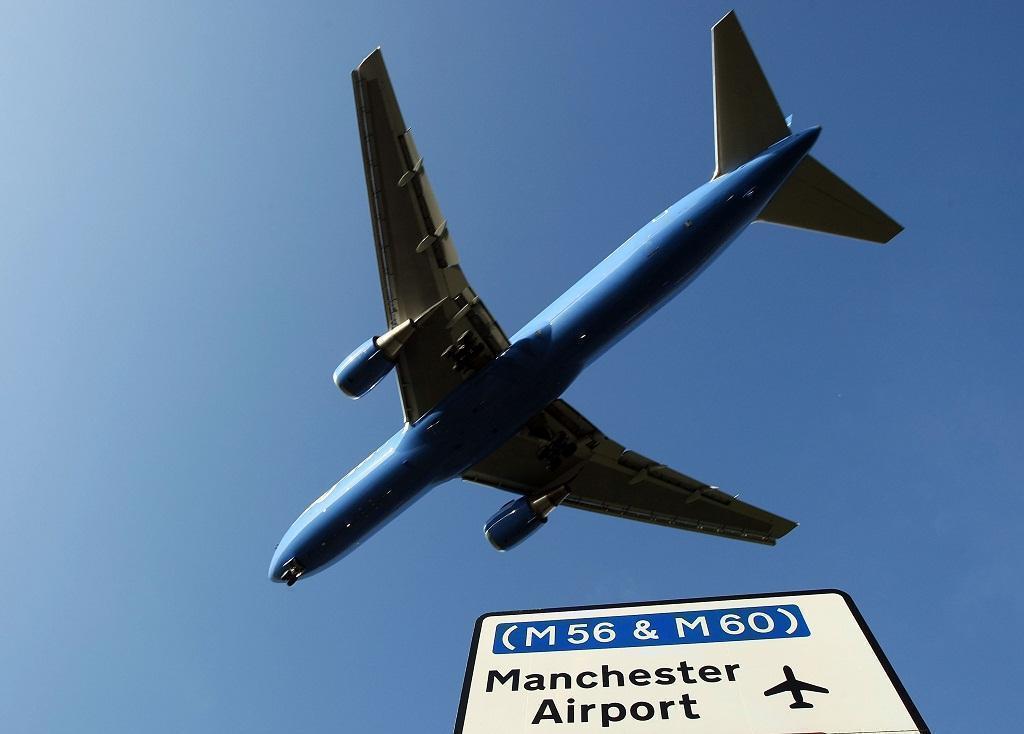Choose Manchester to improve UK's airport capacity
From Hackney, getting on a flight at Manchester airport takes only slightly longer than boarding at Heathrow. And with the arrival of HS2, that time will only get shorter

Sir Howard Davies’ review of airport capacity was widely criticised for kicking the issue into the long grass. But Boris Johnson has other ideas and yesterday set out a grand plan for ‘aerotropolis’ – a Hyderabad-style airport city built in just a couple of years in the Thames Estuary.
Those with an eye for detail in these matters will have spotted that Davies’ task is much wider than settling disputes between Osborne’s pro-Heathrow lobby and Boris island. The Airports Commission has been tasked with “maintaining a UK-wide perspective, taking appropriate account of the national, regional and local implications of any proposals” and in its interim report set out “immediate actions to improve the use of existing runway capacity in the next five years”.
To this end the Northern Economic Futures Commission, which makes its Final Report this week, puts a third option on the table which aims to widen a debate which has become typically metropolitan and myopic: to make Manchester airport the UK’s second international airport hub.
Go North
In most other developed nations this would be a no-brainer: spreading the economic wealth and opportunities that come with airport development across the nation, just as Germany does with Frankfurt and Munich or Spain with Madrid and Barcelona. But as with other economic affairs, the rhetoric of rebalancing is subsumed by a preoccupation with the self-fulfilling prophecy of south eastern success.
Considering the statistics produced by the Civil Aviation Authority, Manchester has a maximum capacity of 330,000 air transport movements per annum (ATMs) – bigger than Stanstead and Gatwick and second only to Heathrow at 480,000 ATMs. Manchester currently operates at 150,000 ATMs, massively under capacity like other Northern airports. So is it really too naïve to suggest that we use Manchester’s excess capacity to address the nation’s capacity problems? Apparently so. Who would want to travel all the way to Manchester to take a direct flight to Beijing?
First of all, Northern businesses. The north is home to a quarter of the nation’s business base who currently have to break their journeys overseas, not necessarily at Heathrow, but more easily at Schiphol, Frankfurt and Abu Dhabi. Not only is this a drag on Northern trade potential but it ensures the wider benefits of airport transfers are accrued overseas. The Northern Economic Futures Commission is also arguing for a period of reduced Air Passenger Duty at Northern airports to drive demand from Northern business travellers.
Hackney to Manchester
But southern travellers could benefit too. Consider the current travel times into and then out of Heathrow from say, East London. From Hackney to Heathrow Terminal 5 takes 75 minutes with a further 180 minutes from arrival at the airport to departure: 4hrs 15 minutes in total. The same journey to Manchester Airport currently takes 186 minutes but with a 90 minute check in time, so only narrowly exceeds the Heathrow option. But with the eventual arrival of HS2 the picture changes dramatically, with the journey time to Manchester Airport falling to around 90 minutes it could be feasible to take off from Manchester on a direct flight to Beijing having left Hackney just three hours earlier.
And as for ‘airport cities’, Boris may be looking East, but Manchester is already blazing a trail. Its airport city plans received approval as an enterprise zone in March 2011 and the foundations for its MediPark, business and retail facilities are already well under way.
Unlike Boris, Sir Howard Davies will no doubt have a wider scope and understand the actual meaning of a national aviation policy, but if northern prosperity means national prosperity then the Airports Commission has another serious option on the table.
Ed Cox is Director of IPPR North and Deputy Chair of IPPR North’s Northern Economic Future Commission. The commission’s final report will be launched in Leeds on Friday.
Join our commenting forum
Join thought-provoking conversations, follow other Independent readers and see their replies
Comments
Bookmark popover
Removed from bookmarks